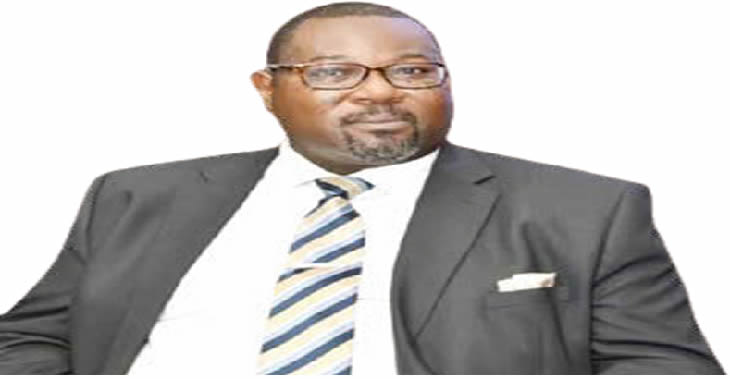
A former Chairman, Major Oil Marketers Association of Nigeria, Mr Adetunji Oyebanji, speaks to GODFREY GEORGE about the recent declaration of the President, Bola Tinubu, on fuel subsidy and the subsequent panic buying and price hike as well as supply issues in the oil market
The President, Bola Tinubu, in his inaugural address on Monday declared an end to the fuel subsidy regime, how did you receive that news?
At first, I would say I was taken by surprise. Of course, subsidy removal is something we have been asking and advocating for a long time, but I said I was surprise because I was not expecting Tinubu to make that statement on that day or the way it was communicated. However, having calmed down and listened to the President’s statement a bit, I have realised and thought of a number of things. First is that the Petroleum Industry Bill (2022) was passed into law about a year ago. So, the law of the land as passed by the parliament is that subsidy is gone, and oil prices are to be determined by market forces. That is actually the law of the land. The second thing is that the past government postponed the subsidy regime till June. This means they also acknowledged that the subsidy more or less has gone, and they had clearly said there was no provision in the budget to fund the subsidy. So, what Tinubu announced is the status quo. Maybe he took everybody by surprise by announcing and effecting it on that particular day. However, having said that, a lot of work needs to be done very quickly to get things balanced and running effectively.
This declaration by the President, surprisingly, was greeted with price hike and panic buying. People buy at N500 to N600/litre now and that started hours after Tinubu’s address. What is your reaction to this?
It is not unexpected that once an announcement of such happens some people will take advantage of the situation to say, “Ah! This is my chance to make more money,” and they rush in that direction. I doubt this is what the entire industry would do. As I headed out of my home this (Tuesday) morning, I saw guys, mostly black marketers, with jerry cans already stationed along the road with their kegs ready to buy and hike the price. That is expected but should not be so. The problem right now is that the panic-buying is so much that people are buying more fuel than they actually require. This has caused a serious problem for some dealers as the demand now outweighs the supply. That is why queues have returned. When we have some clarity, there may be some adjustments in prices but it is unclear at this point. We all buy from the Nigeria National Petroleum Company Limited now and we don’t import by ourselves. It depends on how much NNPCL sells to us which will determine the prices you see at the pump. Anyone selling at N600 per litre is just taking advantage of the situation. If customers can just calm down, I don’t think anybody will need to be so desperate as to buy fuel at that price.
Is there anything MOMAN can do at this point to mitigate these issues?
We issued a statement on Tuesday welcoming the decision of the President on the subsidy. It shows intention and a clear direction on the way we ought to go. We empathise with members of the public on any hardship that this would have caused them. We have appealed to the NNPCL to step up its supply to our industry. I can affirm and confirm that our members will behave responsibly. Nobody will abuse the situation and take undue advantage. MOMAN has nothing less than 3,000 to 5,000 stations. I cannot say if some dealers somewhere in the hinterlands will not do something funny. Nobody can sit in one location and say there will not be any bad egg in the system. But to the best of our ability, we have said we will continue to sell the products. However, I would love to point out that our stocks have been low recently and we have not been selling from the tops of our tanks. We are basically living hand to mouth. So, it is going to depend on how we get additional supplies from the NNPCL.
Do you agree with the position that the common man in the society deserves some financial intervention, looking at the implication of this new policy?
Without a doubt, the poor and vulnerable would face some consequences as a result of this policy. However, I have always held the argument that the so-called common man that we are talking about, we need to be careful to properly isolate those who fall into that category. Sometimes, in an attempt to draw sympathy to our cause, we tag ourselves ‘common men’. But, I believe the poor people in society live in rural areas and they have been paying high prices for a very long time, much higher than we pay in the cities. So, when we claim that they would suffer, these people are already used to high prices. So, who are we really talking about? Are we talking about people who have to transport themselves with public buses from one place to another or barbers who use these products to power their generators? Are we talking of welders or other artisans who require fuel? The simple answer is that something must be worked out for the most vulnerable in society that would be impacted by this change. The challenge is always how to do these things. So, the government can arrange to put physical cash in the hands of these people. But then, we start to run into issues like whether or not they have bank accounts. Again, how do we even identify them to begin the disbursements? This is because if we just say people should raise their hands if the subsidy removal would affect them, almost everyone would put their hands up. That is the typical Nigerian fashion. This is because they believe it is free government money.
Are there other things that can be done?
Another thing the government can do is invest in public transportation so that urban people who need to go to the market or to work can have subsidised transport, making it easy for them to go from Point A to Point B. Government can look at the things these poor people spend money on. They spend money on food, transport, healthcare and education. If that person has N1,000 to spend, part of it is divided along these lines. If the government can subsidise food or education or healthcare, making them cheaper for the people, this means the target has moved from fuel subsidy which has been seen to be very problematic to administer to something else. When we say we want to subsidise fuel, is it for the man who takes a bus from Ajah to Berger, or the man who owns three cars in Banana Island? This second man can afford to buy fuel even if it is N1,000 per litre. So, the essence of the subsidy would have been defeated. How else can the poor and vulnerable be protected? These things should be considered so that the $800m intervention from the World Bank does not go to waste and makes a meaningful impact in the lives of people who really need them.
You spoke about a form of shortfall in supply since the marketers now have to buy only from the NNPCL. What do you think is responsible for this supply chain issue?
Let’s concentrate on the issue of the supply chain. The first issue with supply is that there is only one supplier. When you have a monopoly of supply like that, if the supplier is efficient, you will get the impact. Same as when the supplier is inefficient. Don’t forget that since the government has not been providing money for subsidy, NNPCL has been bearing the weight through what it calls ‘under-recovery’. The result is that NNPC has been running on negatives because they buy fuel at a price and sell it at a price lower than they should have. There is no way they will not run at a loss. This is a major issue that Nigerians are yet to come to terms with. Nigerians always feel that government coffers are unlimited. This is not true. I heard someone say on the TV that ‘when it comes to the government, it should find the money’. Where is the government supposed to find the money? The revenue of the government is clear. It sells oil, generates taxes, levies, duties and the likes. Those are finite. There is a limit to how much can be realised in one year, for instance. So, if government’s revenue from all sources totals N1,000 every year and it uses N800 on subsidy alone and N500 to service debts; people need to understand that the N300 deficit has implications. This is why government borrowing will continue to go up because it needs to borrow to meet even its recurrent expenditure. That leads to inflation which makes life uneasy for people. This same government also has to make sure it gets money for infrastructure because infrastructure creates jobs. This is why there are a lot of unemployed people because the government is not investing. The list goes on and on.
What should the NNPCL be doing at this time?
The NNPCL has to juggle when prices of refined products spike. It may need to wait a bit before ordering cargo. It may also need to adjust itself because the banks would be on its neck to pay for the ones it already bought. And being the only one (that imports refined products), we will see the impact of its inability to meet our supplies. For instance, if I need 20,000 MT for a week, and the NNPCL is only able to give me 10,000 MT for two weeks, this would create a supply chain challenge. You can imagine a situation where not just me but about 50 or more other marketers are on its neck for supply. But, if we are allowed to go to the market to buy the amount of fuel we require, all these issues will not be there. For now, we submit our requests to the NNPCL, they look at the various requests and make some adjustments. This is where the problem comes in. There is also the Russia/Ukraine war and the like. The cargoes used for these supplies, when incidents like this occur, may not be available. This has its impact but it is exacerbated by the fact that it is only one entity that brings in all the products.
When Dangote Refinery becomes operational, what will it change in the oil sector?
I joined people in saying the refinery would be a game changer. The expectation on paper is that it will be a game changer. But, there are many questions to answer. First, Nigeria is producing about 1.2 million barrels of crude oil per day. The Dangote Refinery has the capacity to take as much as 650,000 barrels per day. So, if that is the case, that means more than half of the crude would go to Dangote. This should sound like some warning bells. When we stop and reflect, we should ask ourselves, ‘what does that mean?’ Does it mean we would have less than 600,000 barrels or thereabouts to generate dollars? Don’t forget that there is pressure already on our currency and our dollar inflows are generated largely by what crude oil we sell. Automatically, the quantity of crude oil that will be sold in the international market will be less dollars for the country. Even the 650,000 barrels that would be given to Dangote, would they be sold in naira? These are some of the questions that need to be answered.
Can the supply chain be done in naira?
The man who built the refinery said he spent a lot of dollars. He has to service those debts. He may not want to sell in local currency. He may need to sell some as exports so that he would be able to generate foreign exchange. These are the issues we have to ask ourselves. How long does it take to actually commission a 650,000 barrels/day refinery? I don’t mean the official commissioning where they go and cut a ribbon.
There are a lot of processes that will go on. The commissioning has to be done one by one to be sure that every machine is working. Today, Item A will be tested. Tomorrow, Item B will be tested and this has to be done to all the machines before actual refining starts. How long will this take? When will production start? When will it reach full production of 650,000 barrels/day? This means it has to be receiving that amount of crude every day to replenish the one that has been refined. NNPCL says it will provide 300,000 barrels; will it be for the testing or for half a day? It is only when the refinery is at full production that it will provide petrol that can service our local demands. Has he (Dangote) told us he wants to sell everything locally? A lot of questions still need to be answered. Nigerians are of the opinion that since it has been commissioned and will be operational by August 1, there will be fuel everywhere. No, if we look at all the questions I posed, we would see that Uhuru is still far. We still need a lot of work to get to where we have to get to.
There have been a lot of speculations as to how much prices can rise. Some have said it can get to as much as N700/litre. What, from your assessment, can be the worst case?
I may not be able to say this. The truth is that today, we have only one supplier in the country. It depends on what NNPCL sells to us. If NNPCL sells to me at N200/litre, there is no need for me to sell at N600/litre or so. On the other hand, if NNPC said fuel would now be sold for N600/litre, of course, I would not say I would sell it at N300/litre. No. NNPCL itself must be scrambling, I am sure, in light of Tinubu’s announcement how much it gets foreign exchange, and the price it gets the product at the international market down to Nigeria, so it can set the price it would sell the product to us.





